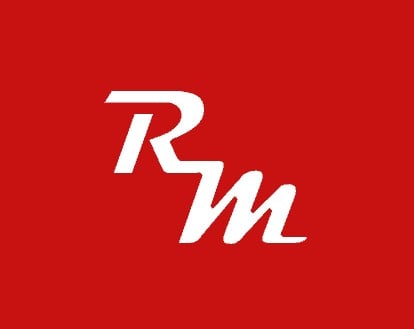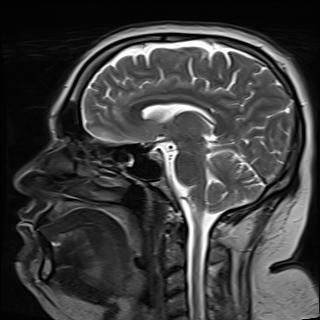https://en.wikipedia.org/wiki/Linux_malware
I fucking hate the mentality that Linux is somehow completely safe.
Just because it isn’t attacked as much because of the low adoption rate among users, doesn’t mean it has no vulnerabilities.
With SteamOS and ChromeOS now having millions of users, Linux attacks will become more commonplace.
IIRC ChromeOS is either built on or can be configured to run applications like a Linux distro?
Yes, so Linux better be ready, because those attacks will increase.
And sentiments like the one from OP don’t help one bit.
Malware for desktop users is the low hanging fruit with little rewards. You just hear about it because it’s so rediculous easy.
The real money is on servers, so that’s were real money/work is invested to develop malware for much higher gains. How successful are they again?
I think you’re right. A single desktop, unless it is either someone in a position of power or access to trade secret files, is not a time effective attack vector.
A server on the other hand can access all of that stuff across an entire organization.
Not just that but whenever you hear that company xyz was hacked and their data leaked, what do you think was powering their servers? Most likely Linux. Sure, they usually have more things exposed to the internet, but users install way more apps so the attack surface is vastly bigger in home computers running Linux than servers.
A lot of critical vulns are exploiting cross platform applications, log4j…
Wine appears in the output of
ps aux.Nervous not-an-emulator noises.
Have people tried running malware in Wine? Would be interesting to see how ‘well’ the malware would work.
The cruder the malware, the better your chances of running successfully in Wine.
Because throwing together some simple executable using inbuild windows functions is much easier than programming something well-build and hidden based on deeper system layers. So your random “I just encrypted all your files because you clicked this .exe, now send me bitcoin to get it back”-bullshit might work well on wine (which is why wine should be run as it’s own user with no priviledges to access anything but your Windows programs).
winetricks sandbox
Lol as if Linux is free of malware.
It was, 25 years ago. Same as Windows’ security was absent at that time.
But people never update their prejudices, so all the jokes are from the last millenium.
If you want an OS that is really malware-free, you need to run temple os.
If you want an OS that is really malware-free, you need to run temple os.
Can’t get malware if the OS is the malware. jk. RIP you crazy genius SOB.
It’s also pretty hard to get malware without network capabilities
I never said that Temple OS is usable ;)
God wouldn’t let you get malware on his chosen OS.
If you want an OS that is really malware-free, you need to run
temple os.*anything unpopular
Well, anything unpopular that doesn’t use any software (even low-level software) that is also commonly used in popular environments. For example, game consoles, embedded devices or car entertainment systems often use outdated versions of popular browser engines. So to hack these, you don’t need to be a highly skilled hacker, you just need to be able to try some older vulnerabilities.
And there are enough malicious websites that will just automatically check for these vulnerabilities. And then it’s enough to accidentally open one of these malicious websites and even though nobody wrote the hack specifically for your car, you might catch some malware regardless.
For example, when GNU/Linux was unpopular, there was no malware for it; when it became the world’s favourite server software or became a valuable target
True, but when it was unpopular it also didn’t use code/software that was commonly used on a more popular system.
It isn’t, but you’re unlikely to encounter Linux specific malware.
I’ve been using Linux for almost 20 years, and AFAIK in all that time I’ve never encountered a Linux virus. OTOH when I run Windows, I hit a virus within the first six months.
Sounds like you have bad habits, I’ve had windows for years and no problems. Just scan with Defender after a download, occasional Malwarebytes scans to make sure, and you’re pretty safe.
Most viruses are written for windows but that doesn’t mean you’re just instantly safe. You can bet as Linux grows they’ll see far more.
Yeah last time I had a windows virus was because I got a bad Photoshop crack. But the virus was just a coin miner. Before that, I hadn’t had a virus in 13 years.
With how much Adobe infects a system, leaving multiple different traces behind even when uninstalled, I think it’s fair to say that Photoshop itself is almost a virus
Genuinely, how can you get rid of all that? How do you even find everything?
Creative cloud is malware in my opinion
The Win10 iso that I definitely
legitimately purchasedhas appAppsfolder that has Photoshop in it; I’ve always just assumed I would be able to delete it from there.If you don’t have it portable-ized, though, Revo Uninstaller might help. (though I never used it for long enough for the trial to run out, so I don’t know how much it costs)
Revo Uninstaller has a free version.
Never paid for it, yet have been using it for decades.
— When the Indian Amazon support guy sees you’re a junior on your first week and tells you to execute a script to install a software for a video call with him. And you do, but it needs sudo access, so you give it…
— You have sudo power here
Sadly, true story. I never told anyone. My neurons clicked a day after that and I removed everything from the computer. It was too late, they hacked some things but IT just laughed and recovered some backups. They never knew I was the virus all along.
Good times.
Security through obscurity is not security
That’s why I use NixOS. Double the obscurity, double the security!
Say that too loudly, and you might upset the apple crowd lol
True story, Linux sees MIME types, so if Hot.Chick.Blows.Brother.mp4 is a virus, it shows up with a Windows (MZ) binary icon, not a media icon 😉… unlike Windows which only recognizes extensions 😒.
Microsoft, in their infinite wisdom, also decided that file extensions should be hidden by default. So you won’t even see that you downloaded TaylorSwift_1989_TaylorsVersion.exe instead of TaylorSwift_1989_TaylorsVersion.mp3 unless you changed that setting ahead of time.
Wait… Real?? I guess its always been a part of the first round of changes I’ve always made to Windows. Crazy how much I’ve normalized fighting the software I use.
Anyway, that’s wild. What a just bad and unsafe decision.
See, this is mostly because of 2 things. One, when changing filenames, users make the stupid mistake of changing the extension as well (having no extension that is), which of course, in Windows, it means the file won’t be recognized as a media file. Two, blind you from the truth - you don’t want users that can think, that’s not what our bysiness is about 😏. Also the reason behind why Windows has less and less options and people that want to change something have to revert to registery hacks to do so.
It’s even worse, since exe files can have custom icons, the malware will have a mp3 player icon in their exe file, making it totes confusing.
And this only gets worse, since audio file tags (and I believe video files as well 🤔) include album art nowadays, so it has an icon that is the album art… exe’s also have custom icons, so 🤷…
That’s not a Linux thing. It’s just whatever desktop shell you chose to use and various shells behave in various ways. The reason this might be safer in most Linux distros is that you’re discouraged from executing things under a privileged user which means that malware can’t make significant changest to your system easily. If you do the same in windows, you’d be just as safe.
Not exactly… I mean, yes, you’re right about the privileges thing, but Windows has a lot more security holes than Linux (or any POSIX based OS for that matter). The root of the problem, as always is the distant Windows relative, DOS… no user space notion whatsoever… and Windows NT has dragged these issues for decades now, all because MS made (bought) DOS and distributed it.
My memory is fuzzy and I don’t know the correct words to research it, but I am pretty sure that depends on the DE.
Either KDE Plasma (dolphin) or GNOME (nautilus) uses the extension iirc. Maybe that changed though.Have no idea, haven’t changed a DE in over 6 or 7 years, I use xfce.
If you’re feeling even more paranoid, go with something even more obscure like Plan 9 from Bell Labs. It’s Unix-like but differs so much from it that a Unix or Linux type malware would do nothing to it.
I always want to try Plan 9 or one of its successors but actually never do. So many interesting concepts but nothing really to apply them to.
There’s always GNU/HURD, if you want a little compatibility
It’s a good question what I really want. I’m very satisfied with my current system (NixOS) but in the end it’s still Linux and stuff like the 9P filesystem just intrigues me. So it’s not like I’d need to switch or anything. But a playground to apply the concepts to some problems would be nice. Maybe I’ll try 9front some day and see what I can do with it
Indeed. A fun little project but unfortunately it doesn’t seem ready for any sort of daily use. Driver support (a crucial component) is probably pretty scarce. Their web browsers too are hit-or-miss, with one in particular (Links) that crashes when performing a during Google search.
Still, there are few alternatives that differ substantially from the original ancestral Unix that are available and more should be developed. GNU/Hurd and the BSD’s are the only ones I know of.
I only run z/OS on an IBM mainframe.
It’s nice you could just solder in new components.
Tru64 and SunOS are furthest I go back I think, Commodore KERNAL/BASIC technically.
Obscure OS you could actually run today could be Solaris…
You guys are quick to forget that Wine (Wine Is Not an Emulator) is, in fact, not an emulator. Most windows ransomware will successfully encrypt your files if ran with wine.
That is why I always try to avoid installing Wine natively
How else do you install WINE? Is it possible to sandbox WINE apps?
but then the little Wine window appears
the wine prefix is being updated, please wait…
False sense of security. You accidentally downloaded a virus that doesn’t work on your system… What kind of habits and hygiene are you rolling with on a day to day basis?
It’s your grandma, you gave her ubuntu and everything has been good for a while.
If you use Linux because of this you are just a kid following the hype
What exactly would be a non mainstream OS?
z/OS?
Temple
CP/M?
deleted by creator
Downloading a virus has as much effect on Windows as it does on Linux and any other operating system: None.
Unless it exploits a security vulnerability with something that automatically touches the file. Like a virus scanner.
Next you’re going to say https://www.cisecurity.org/benchmark/red_hat_linux exists for fearmongering.
so, I had a pendrive that a friend borrowed once. later on another friend used it and said it had virus. I simply couldn’t know since I was on GNU/Linux.
though later on I cleaned it with dd.
I work service desk. This right here is the reason I tell Mac users they need to keep the AV on.
I think the majority of exploits in metasploit are for Linux, but could be wrong.













